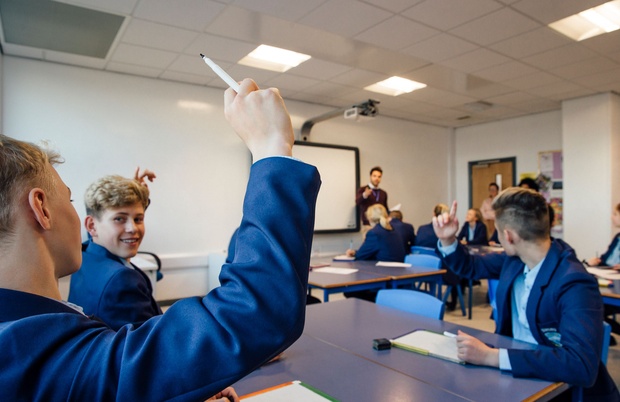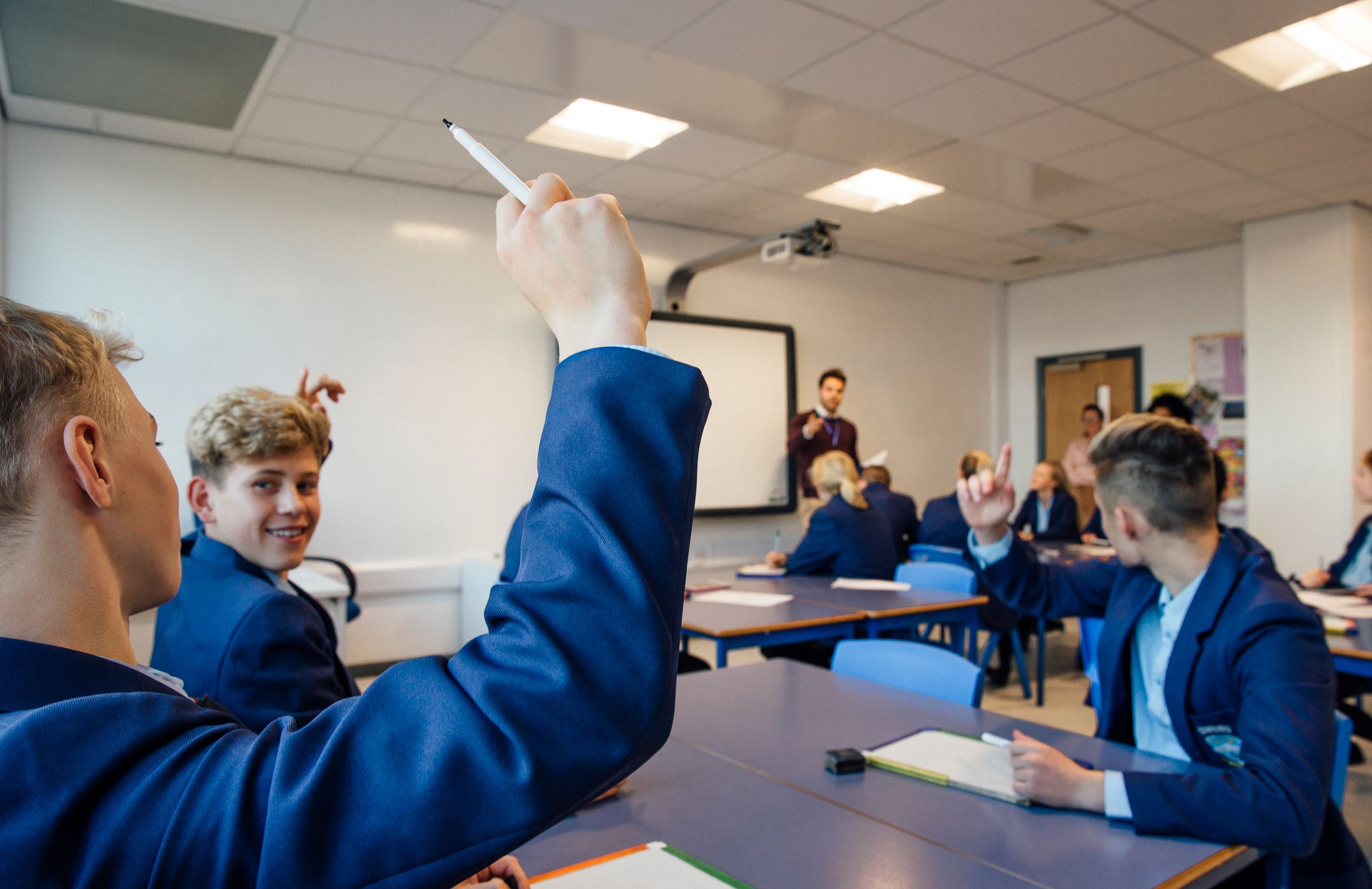Keen to examine how Tate’s ubiquitous social media presence and widely-shared extreme masculine ideals might be impacting the classroom climate, Monash University researchers Dr Stephanie Wescott and Professor Steven Roberts have drawn on the reflections and insights of 30 women teachers to warn of a horrifying spread of brazen misogyny and sexism amongst young boys.
Participants reported that over the last two years, boys’ problematic behaviour had become “significantly more pervasive, more perverse, more targeted, and more brazen”.
Women teachers across all school sectors and contexts reported being the target of blatant sexual harassment and frequent intimidation tactics from boys – incidents they largely felt ill-supported to handle.
Wescott told EducationHQ she found the interviews “really affecting”.
“Even though I’ve been a classroom teacher and I’ve dealt with this stuff myself, the things that women are having to hear about women, about themselves, you just wouldn’t put up with in any other industry.
“In no other workplace would this be tolerated,” Wescott said.
The study found an infiltration of Tate’s ideas and tropes in classrooms, with teachers saying his name was initially conjured by boys as “a neutral talking point, albeit with eventually sinister intentions”.
“Andrew Tate’s name was being brought up frequently in class,” Wescott says.
“He was being used as a provocation. So really commonly, ‘Miss, what do you think about Andrew Tate?’ was being asked of teachers, in a way that’s actually quite intimidating.”
Teachers are thus being lured into discussions where their value as women is confronted, and where boys take the liberty of boldly asserting their thoughts on any topic they choose, the study found.
Jane, a Catholic school teacher from NSW, reported that her students often “make joking references about Andrew Tate to try and get a reaction from the girls or some female staff”.
“They know exactly the type of polarising figure that he is, but they feel safe enough to put him into the classroom as a joke”, she explained.
Melanie, a former public school teacher from Queensland, who recently quit the profession due to ongoing sexual harassment from boys, told researchers her students spoke about “how much they loved [Tate]”.
“…And they know in a way that he was bad, but it was a funny thing to like him,” she observed.
The teachers’ accounts also hint at a worrying uptick in gaslighting and belittling behaviour from boys, as well as “straight up misogyny towards women”, Wescott adds.
“It’s [a situation where a] teacher is responding to something, and then the boys’ are saying, ‘Oh, you’re getting really upset, are you OK? What’s going on?’
“Then there’s the sexist comments or sexual harassment; a teacher said that a student said to her, “your boobs look really good today”…
“Horrific [comments] that would surprise most people, I think, if they aren’t in a school and they weren’t across it, most people would just be horrified.”

Dr Stephanie Wescott says many women teachers didn’t feel well supported by school leadership to manage the behavioural issues they faced from boys, and for some it was implied they were, in fact, the problem.
A building culture of entitlement and audacity amongst boys emerged strongly from the findings.
One Melbourne teacher reported that it was usual for boys to ‘demand feedback’ from women teachers, saying things like, ‘this is how we teach it here. You need to do this’, or ‘explain what you mean’, in ways that differed for their male colleagues.
Another recounted frequent expressions of male superiority in her classes, which included boys putting their feet up on the furniture and ‘sitting back’, or ‘just getting up and walking out of the classroom’ and derailing lessons by ‘taking up so much air in the room’.
Many teachers said they didn’t feel well supported by school leadership to manage the behavioural issues they faced, Wescott said, and for some it was implied they were in fact the problem.
“[Some were led to believe] that their teaching or their classroom management wasn’t up to scratch.
“Or [leadership said] ‘that doesn't happen to me’, as in, it’s the fault of the individual woman that this is happening to her.”
Wescott said the response from leadership in many cases needed to step up, with a zero tolerance policy required across the board.
“There are some schools that obviously do take these things very seriously and put consequences in place.
“But there are other schools that take a more restorative approach, which can kind of work, but a lot of women were saying that wasn’t quite adequate enough for them, either.
“So, I think the first step really is that women should be believed when this is happening, and the effect that it has on them should be taken very seriously.”
Roberts said the research highlighted the urgent need for open conversations in schools that allow women to share their experiences, as well as the need for broader dialogue about the impact of ‘manfluencer’ culture on boys.
“The study suggests that current school-level responses, often one-off sessions or punitive talks, may not be sufficient to address the distress experienced by teachers,” Roberts said.
“Instead, our findings call for broader and more comprehensive school-level responses to tackle the pervasive influence of ‘manfluencers’ on boys’ behaviour, including open conversations, ongoing dialogue, and proportionate measures.”
Wescott said the misogynist ideologies spread by Tate could be appealing to boys who are feeling disenfranchised or that they’ve ‘lost out’ to women’s gains in power and status in the post #MeToo era.
“Andrew Tate actually manipulates that perceived loss of power, and he talks about that.
“And so any boy who might be feeling a little bit disrespected or disenfranchised is vulnerable to this sort of message – and they believe it when they hear it…”
Tate’s skewed take on the feminist message is “very scary”, the researcher warned.
“[It’s been] misunderstood in that way so that feminism has become the enemy and an oppressive force, when actually it’s supposed to be liberating [for all].
“So, there’s a lot of work to do around that, too.”
Wescott would like to see the Education Minister familiarise himself with the research findings.
“We’d really love to speak to Jason Clare about our research. We’d really love for him to hear what the women are telling us about their experiences in the workplace and at schools.
“And we’d love a long-term, meaningful investment and policy response,” she said.
















